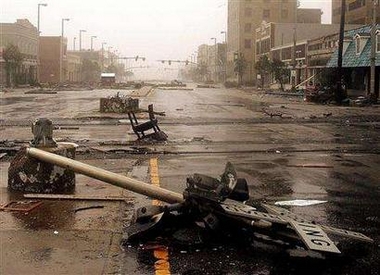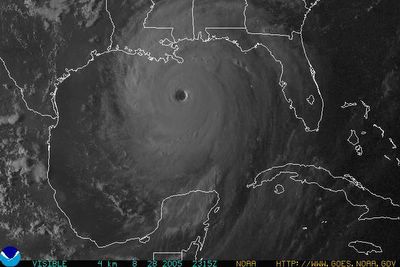ON WHY HIGH IQ FAILS US, THE FREAKONOMICS OF PEAK OIL, AND HORSE BREEDING, MANHATTAN STYLE by Dimitri Podborits
Part OneI find myself in a very strange situation. Everywhere I look I see very smart people expressing confident opinions about some future developments of various large and small-scale financial and economic phenomena. One might assume that these opinions should somehow filter into various decision making processes for for various kinds of analytical, strategic and tactical thinking. Therefore, one might hope that the opinions expressed by the smartest people with the most confidence are the most informed, balanced and rational.
However, often I observe the opposite trend: the smarter the people are, the less they are interested in the world around them and the more confident their opinions become. Under these conditions, high IQ becomes almost a handicap. It is almost as if a storm would be forecast and a person would be warned to seek shelter, and his response would be – "Don't try to scare me – I am too smart to seek shelter. I am confident in my ability to always outsmart the storm".
You would think that his level of confidence would be correlated with the information the person has about the severity of the coming storm. But no, the person is not even interested in the storm. He cheerfully observes that he has little understanding of storms in general and has not even bothered to look into the information gathered by others about this particular approaching storm. He is not interested in these things. This, however, does not affect the confidence of his opinion or forecast which (the confidence) is based solely on understanding himself as a smart, high-IQ person. And this is something that is hard to argue with – yes, he is smart, "high IQ" is written all over his forehead. Nevertheless, you almost wish he wasn't, since high IQ makes him more vulnerable, not less, and his forecast more flawed.
One can speculate on the origins of this paradox. There is a well-researched phenomenon in evolutionary biology called Zahavi's handicap principle, which establishes that certain types of animal morphology and behavior evolve precisely because they reduce the animal's fitness and penalize its chance for survival. A peacock's tail is an obvious example. One can observe that a peacock's tail is almost "deliberately designed" to introduce a higher cost for survival for the host animal and therefore to communicate to others (including predators and potential mates) that the peacock-carrier of the larger tail is the animal with superior genes.
I propose that a very smart person deliberately ignoring reality and expressing extremely shallow opinions with extreme confidence based on no thinking at all behaves much like a peacock advertising to predators his costly tail. The message that he broadcasts is basically this: "Look at me -- I am so obviously smart that I can deliberately make extremely dumb statements with a very high degree of confidence; it takes a really high-IQ person to totally ignore reality and still be this confident in his forecast".
Under these circumstances, the worst possible thing someone on the receiving end of an "opinion" can do is to assume that smarter people express more informed, more based-on-reality, and more rational opinions. I cannot warn people strongly enough: beware of smart people expressing confident opinions or forecasts.
A case in point – a recent series of commentaries on the topic of "Peak Oil" by two eminent economists (and self-described "rogue" economists) who wrote an award-winning and best-selling book, Freakonomics. The book, which I greatly enjoyed (in the audio version) discusses various phenomena traditionally viewed outside the realm of economics from the classical economics standpoint. The book is well-written, insightful, makes a number of interesting observations and very quickly appeared on multiple bestseller lists.
I'd like to note, however, that the self-definition of the Freakonomics' authors as "rogue" economists is largely misleading. The success of the book is based on the application of the known patterns of human behavior -- the chief of which is the generalization that "people respond to incentives" -- to the analysis of human dynamics nontraditional to the economics at large, such as illicit drug dealing and abortion. Obviously, if one can talk about "the economics of Hollywood" and "the economics of healthcare", one can also talk about the economics of crack-cocaine, because in all cases it is ultimately the human behavior that underlines all of these dynamics. In this sense, the authors are not really "rogue" economists, as they do not undermine any of the reigning economic principles; they embrace them and apply them to the areas of human behavior unfamiliar to the economics as practices by the "economic establishment" (if there is such an institution).
The problem starts, however, when the "freakonomists" begin to obnoxiously profess that since some dynamics can be understood within the context of human behavioral patterns, then all dynamics can be understood with human behavioral patterns.
One such dynamic of supreme importance centers around the Peak Oil phenomena that has finally entered into the mainstream of public debate, as evidenced by the Peter Maass' article in New York Times magazine. Jim Kunstler criticized Maass' article last week for being wishy-washy about the issue of Peak Oil; to his criticism I would add that Maass in the article dedicated in part to the research by Matt Simmons noncritically repeats the official Saudi number for total recoverable Saudi oil reserves as 260 billion barrels (the claim never substantiated in public statements by field-by-field breakdown by Saudi Aramco or the Saudi government), while analyses abound by Simmons, Campbell, McKillop and other authoritative industry observers claiming that the official number has no basis in reality.
Nevertheless, I believe that the Maass' article is a valuable and welcome development since it increases, not decreases the overall public understanding of the Peak Oil phenomenon.
Freakonomists, however, confidently claim that the Peak Oil will be a non-event. In the leading commentary on the topic in the authors' blog, titled "Peak Oil: welcome to the new media's version of shark attacks," and then in the follow-up commentary, they ridicule the PO phenomena as a media-fabricated frenzy and portray the people analyzing this topic as a new incarnation of obscure alchemist tinkerers -- charmingly ridiculous in their doomed determination, but harmless.
On what basis? After all, the freakonomists cheerfully state that "I don't know much about world oil reserves. I'm not even necessarily arguing with their facts about how much the output from existing oil fields is going to decline, or that world demand for oil is increasing. But these changes in supply and demand are slow and gradual -- a few percent each year."
Well, this is how they describe their worldview:
"What most of these doomsday scenarios have gotten wrong is the fundamental idea of economics: people respond to incentives. If the price of a good goes up, people demand less of it, the companies that make it figure out how to make more of it, and everyone tries to figure out how to produce substitutes for it. Add to that the march of technological innovation (like the green revolution, birth control,
etc.). The end result: markets figure out how to deal with problems of
supply and demand.Which is exactly the situation with oil right now. I don't know much about world oil reserves. I'm not even necessarily arguing with their facts about how much the output from existing oil fields is going to decline, or that world demand for oil is increasing. But these changes in supply and demand are slow and gradual -- a few percent each year.
Markets have a way with dealing with situations like this: prices rise a little bit. That is not a catastrophe, it is a message that some things that used to be worth doing at low oil prices are no longer worth doing. Some people will switch from SUVs to hybrids, for instance. Maybe we'll be willing to build some nuclear power plants,
or it will become worth it to put solar panels on more houses."And finally, the last nail in the coffin of these pesky Peak Oil doomsayers:
"As [Maass] notes, high prices lead people to develop substitutes.
Which is exactly why we don't need to panic over peak oil in the first place."The scariest thing for me here is not the flimsiness and the stupidity of the rebuttal, but the CONFIDENCE and the LACK OF INTEREST IN THE REALITIES OF THE WORLD that they are pronounced with. Even scarier,
however, is that these commentators are smart people with high IQ, regarded throughout the world as authorities in economics. When these two talk, many listen.
Of course people respond to incentives! Of course markets will attempt (as they have been attempting for a long time, without success) to find substitutes within the same basic economic structure.
However, is there a physical law stating that an adequate substitute, fitting into any existing infrastructure and cost structure, and satisfying the needs of any living arrangement, has to exist? I wish the freakonomists were there with me during my various travels -- from Mexico to Greece to Alaska -- where I saw communities of various scales abandoned and in ruins because the populace couldn't find at sufficient cost and quantities the resources they have come to depend upon, from water to arable soil to fish in the sea to mineable minerals. What if the vast literature dedicated to discussing the inadequacy of all currently known putative replacements for cheap oil has a point?
So, if we are not lucky enough to find a sufficient replacement for cheap oil, what will our response be? How will we, so to speak, respond to incentives?
Well, as Kunstler euphemistically puts it,
"we will have to make other arrangements." This will basically mean that the society will change its very fabric and structure in response to the post-cheap oil circumstances.
The structure of the "new arrangements" arrangement may be, however, very unfamiliar from the point of view of "the world as we know it" -- a Maass' term that the freakonomists disagree with. I also think that a better term would be "the world as we practice it".
For example, one of the
"responses to incentives" can be described as "making do with less", as in
malnutrition or starvation.
Another response under the same circumstances can be described as
"going to war".Yet another response can be described as "mass migration away from the areas that have become uninhabitable, into the still habitable areas whose longtime residents would
not be too happy to share their own resources with the newcomers".
And yet another response could be described as
"reorganizing the economy around local food production".Of course, there could be still other arrangements including elements of several or all of the previous four, plus some other yet unmentioned. However, they all would reflect "the new equilibrium" of the post-cheap oil world.
If someone can show me that a perfect market and even a lessaiz fair economy cannot respond to incentives along these lines, I would be very interested. I think that a big mistake that the freakonomists make even in their "pure economic," i.e. maximally abstract, nonspecific and detached-from-reality considerations when they dismiss any changes, is that they equate the notion of a market economy with the notion of a growing economy, and also with a consumer economy. These, however, are not the same things. A market economy, for example, can remain such even while becoming, under post-cheap oil circumstances, a contracting or imploding economy. How this scenario would correspond to the notion of the consumer economy I would leave as an exercise to the esteemed freakonomists.
Furthermore. I have carefully looked at the economic side of the argument and have not found any substantiation of the claim that "the changes in supply and demand would be slow and gradual – a few percent per year." I don't see how even against the backdrop of a perfect market economy, say,
Ghawar's production cannot collapse fairly quickly due to geological maturity and overinjection of seawater, as Simmons suggests. I don't see how the same cannot happen with any other of the currently producing fields, or several fields at once at some point in the fairly near future. What cutting-edge economic thinking precludes, for example, the oil province of Saudi Arabia to start declining at the rate of, say, North Sea or Alaska's North Slope?
The authors claim:
"If oil prices rise, consumers of oil will be (a little) worse off.
But, we are talking about needing to cut demand by a few percent a
year. That doesn't mean putting windmills on cars, it means cutting
out a few low value trips. It doesn't mean abandoning North Dakota, it
means keeping the thermostat a degree or two cooler in the winter."It appears to me that the authors somehow missed in their analysis that the decline of, say, 5% per year in consumption of fossil fuels (against the backdrop of, say, 1% of overall population growth due to demographic reasons and mass migration away from the areas hit the hardest) would translate into a roughly
50% of fossil fuel usage reduction after 10 years. That's the core of the PO argument with which the authors "are not necessarily arguing with" -- that past peak, the oil production will continue to fall, as it will take ever-increasing heroic expenses to keep it flat, and any successes in keeping it flat will be necessarily temporary.
So, in a dozen of years in this scenario -- probably still within the economic life time of a brand new Hummer H2, which has by then recently descended from a factory conveyer somewhere in the state of Michigan on the day the oil has peaked (that day will be known only post factum, of course), purchased through an employee incentives discount and financed on credit, the owner will have to cut a nonessential 50% of his overall driving, keep the thermostata mere 25 or 30 degrees lower and face doing more of the same in subsequent years, all without abandoning North Dakota, or making any other lifestyle changes.
One could comment that the "freakonomists" seem to have gone pretty far in life for people exhibiting the kind of thinking (as well as the level of confidence in their own thinking) that they demonstrate. This observation helps matters very little, though. It is not the shallowness of their analysis, total lack of interest to the underlying realities, and a 15 second attention span -- it is how widely and
noncritically such views are accepted that I find most disturbing here.



























